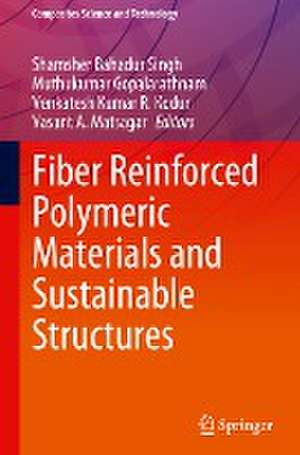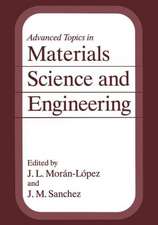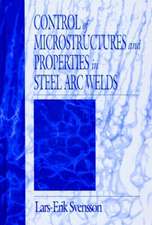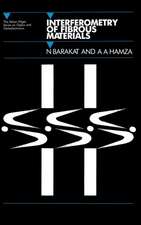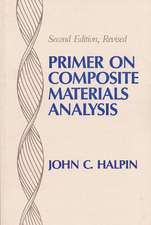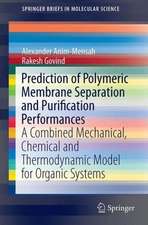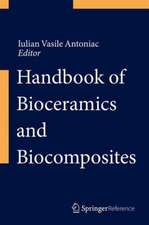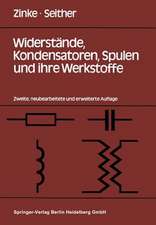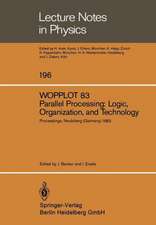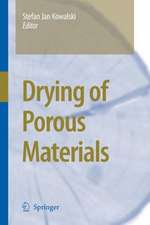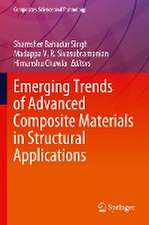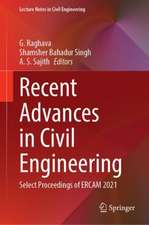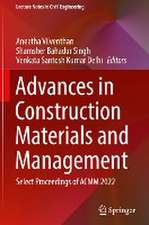Fiber Reinforced Polymeric Materials and Sustainable Structures: Composites Science and Technology
Editat de Shamsher Bahadur Singh, Muthukumar Gopalarathnam, Venkatesh Kumar R. Kodur, Vasant A. Matsagaren Limba Engleză Hardback – 2 mar 2023
| Toate formatele și edițiile | Preț | Express |
|---|---|---|
| Paperback (1) | 841.72 lei 38-44 zile | |
| Springer Nature Singapore – 3 mar 2024 | 841.72 lei 38-44 zile | |
| Hardback (1) | 1012.08 lei 3-5 săpt. | |
| Springer Nature Singapore – 2 mar 2023 | 1012.08 lei 3-5 săpt. |
Din seria Composites Science and Technology
- 18%
 Preț: 1001.02 lei
Preț: 1001.02 lei - 18%
 Preț: 951.77 lei
Preț: 951.77 lei - 24%
 Preț: 885.76 lei
Preț: 885.76 lei - 18%
 Preț: 1116.26 lei
Preț: 1116.26 lei - 18%
 Preț: 1006.55 lei
Preț: 1006.55 lei - 18%
 Preț: 961.23 lei
Preț: 961.23 lei - 18%
 Preț: 950.52 lei
Preț: 950.52 lei - 18%
 Preț: 1109.16 lei
Preț: 1109.16 lei - 18%
 Preț: 1109.16 lei
Preț: 1109.16 lei - 24%
 Preț: 844.96 lei
Preț: 844.96 lei - 18%
 Preț: 1112.48 lei
Preț: 1112.48 lei - 18%
 Preț: 952.89 lei
Preț: 952.89 lei - 18%
 Preț: 1383.00 lei
Preț: 1383.00 lei - 18%
 Preț: 1104.43 lei
Preț: 1104.43 lei - 18%
 Preț: 1001.65 lei
Preț: 1001.65 lei - 24%
 Preț: 947.01 lei
Preț: 947.01 lei - 18%
 Preț: 1104.08 lei
Preț: 1104.08 lei - 18%
 Preț: 1117.50 lei
Preț: 1117.50 lei - 18%
 Preț: 1386.17 lei
Preț: 1386.17 lei - 18%
 Preț: 995.34 lei
Preț: 995.34 lei - 18%
 Preț: 1113.89 lei
Preț: 1113.89 lei - 18%
 Preț: 1108.67 lei
Preț: 1108.67 lei - 18%
 Preț: 956.99 lei
Preț: 956.99 lei - 18%
 Preț: 1016.18 lei
Preț: 1016.18 lei - 18%
 Preț: 1389.78 lei
Preț: 1389.78 lei - 18%
 Preț: 1107.41 lei
Preț: 1107.41 lei - 18%
 Preț: 1002.94 lei
Preț: 1002.94 lei - 18%
 Preț: 1111.67 lei
Preț: 1111.67 lei - 18%
 Preț: 953.65 lei
Preț: 953.65 lei - 18%
 Preț: 1006.72 lei
Preț: 1006.72 lei - 18%
 Preț: 1109.62 lei
Preț: 1109.62 lei - 18%
 Preț: 1006.55 lei
Preț: 1006.55 lei -
 Preț: 386.22 lei
Preț: 386.22 lei - 24%
 Preț: 678.67 lei
Preț: 678.67 lei - 18%
 Preț: 1116.71 lei
Preț: 1116.71 lei
Preț: 1012.08 lei
Preț vechi: 1234.24 lei
-18% Nou
Puncte Express: 1518
Preț estimativ în valută:
193.69€ • 201.46$ • 159.90£
193.69€ • 201.46$ • 159.90£
Carte disponibilă
Livrare economică 24 martie-07 aprilie
Preluare comenzi: 021 569.72.76
Specificații
ISBN-13: 9789811989780
ISBN-10: 9811989788
Pagini: 376
Ilustrații: IX, 376 p. 213 illus., 172 illus. in color.
Dimensiuni: 155 x 235 mm
Greutate: 0.79 kg
Ediția:2023
Editura: Springer Nature Singapore
Colecția Springer
Seria Composites Science and Technology
Locul publicării:Singapore, Singapore
ISBN-10: 9811989788
Pagini: 376
Ilustrații: IX, 376 p. 213 illus., 172 illus. in color.
Dimensiuni: 155 x 235 mm
Greutate: 0.79 kg
Ediția:2023
Editura: Springer Nature Singapore
Colecția Springer
Seria Composites Science and Technology
Locul publicării:Singapore, Singapore
Cuprins
Methodology for Evaluating FRP-Concrete Interfacial Bond Strength at Elevated Temperatures.- Durability of FRP Composites for Use in Civil Infrastructure - From Materials to Application.- Stochastic Multiscale Analysis for Incorporating Micro-Scale Spatial Randomness in Multi-Directional Composite Laminates.- Circular Economy: New Opportunities in Sustainable Nano Materials and Polymer Bio-Nanocomposites.- Rehabilitation and Retrofitting of Reinforced Concrete Structures using Fiber Reinforced Polymers- Experiments.- Construction Technology for Integral Bridges with Basalt Fiber-Reinforced Polymer Prestressing Tendons.- Experimental Investigation on Flexural behaviour of Large Scale RC Beams Strengthened with Various FRP Configurations.- Elasticity Solution of FG Shell under Unidirectional Bending by Mixed Semi-Analytical.- Effect of Prestressing on CFRP Laminate for Flexural Enhancement.- Cocos Nucifera Sheath based Hybrid Composites as Alternative Materials for Body Armour Applications.- Transformation of Natural Fiber Reinforced Composites on the Structural Properties to the Large Scale Application.- Role of FRP Composites in Aeroelastic Modeling used in Wind Tunnels.- Comparative Study of Long-Term Monitoring Systems and Introduction to Emerging Smart FRP Technology.- A Potential Bio-Reinforcement in Polymers for Fiber Reinforced Plastic (FRP) Structures- An Overview.- Hydration and Microstructure Characteristics of Nano Silica Admixed Sustainable Cementitious Mortar.- Nanoparticle Reinforced Natural Nanofibers.- Fabrication and Mechanical Characterization of Glass/Epoxy and Carbon/Epoxy Fiber-Reinforced Composite Laminates.- Evaluating Accuracy of Correlation Expressions from Literature for Estimation of Concrete Strength from Ultrasonic Pulse Velocity.- Experimental Investigation on Durability Properties of Hybrid Fibers Concrete.- Evaluating the Synergic Effect of Sugarcane Bagasse Ash and Rice Husk Ash on the Mechanical Properties of Reinforced Cement Concrete.- Effect of Polypropylene Fiber on the properties of Self- Compacting Concrete with M-Sand.- Numerical Investigation of Nonlinear Guided Wave Propagation in a Functionally Graded Material.- Effect of High Temperatures on Stiffness of Water Quenched Reinforced Concrete Columns Supplemented with Steel Fibers.- Performance Characteristics and Economical Evaluation of Various Types of Nanomaterial Concrete.- Bending Analysis of Laminated Composite Cylindrical Shell using Fifth Order Shear Deformation Theory.- Performance of GGBS and SBA in Compressed Stabilized Earth Blocks.- Tailoring Properties of Electric Arc Furnace Slag based Geopolymer through Fly Ash Incorporation.- Impact of Clay and Non-Clay Microfines on Various Concrete Properties.- Experimental Evaluation of GRFP Rebars in Concrete Beams.- Coal Ash: A Non-Virgin Material Sustained for Cement Concrete.- Composite action of Fibers and Ferrocement Laminate on Flexural behavior of Self Compacting Concrete.- Effect of Layer Thickness and FRP Reinforcement Ratio on the Load Carrying Capacity of ECC Composite Beams.- Influence of Fire on Steel Reinforcement of RCC Elements.- Static and Dynamic Mechanical Properties of Graphene Oxide and Fly Ash based Concrete.- Evaluation of Properties of Glass Fiber Reinforced Concrete through Laboratory Investigation.- An Experimental and Analytical Assessment of the Opportunities for Incorporating Cinder as Binary Blended Concrete.
Notă biografică
Shamsher Bahadur Singh is Fellow of ASCE, Chartered Engineer (India), and Fellow of Institution of Engineers, Fellow of Coalition for Disaster Resilience Infrastructure, and Fellow of Indian Association of Structural Engineers. He has Professional Engineering (Civil) license from USA and has received several fellowships such as Post-doctorate Fellowship from Lawrence Technological University, USA, Quality Improvement Program Fellowship at Indian Institute of Technology, Kanpur, Research Fellowship at Motilal Nehru Regional Engineering College Allahabad, as well as National Merit Scholarship from Regional Engineering College (REC) Warangal, and integrated scholarship at schools. He has 245 publications to his credit which include more than 195 research papers, 9 books, 13 research reports, and 23 book chapters, 2 theses, and 3 patents. Most importantly, he has 1. executed 40 research and consultancy projects at international level, 2. won a prestigious collaborative project in collaboration with IIT Delhi and sponsored by Defence Research and Development Organization for development of blast-resistant containers, 3. won US-2020 partnership award from US Department of State with collaborations from MSU, USA, and IIT Delhi, 4. awarded a project from U.S.-India Education Foundation, Fulbright Specialist Program to host U.S. Specialist, at BITS Pilani, for academic year 2022, 5. received the Best Academician of the Year 2020 Award by the honorable Governor of Rajasthan, India, 6. selected as Member of Construction Industry Development Council (CIDC) Academy of Construction Engineering, 7. awarded Bharat Shiksha Gaurav Puraskar and Certificate of Excellence from KTK Outstanding Achievers and Education Foundation, New Delhi, 8. won the Best Paper Awards from The Indian Concrete Journal in 2020 and ACEE2015, Penang Malaysia, in 2015, (9) elected as Associate Member of American Concrete Institute (ACI) 440 and ACI 423 committees, and (10) appointed as Review Editor on the Editorial Board of Computational Methods in Structural Engineering. He has taught in some of the best universities in India and USA such as at Motilal Nehru National Institute of Technology, Allahabad, NIT Warangal, BITS Pilani, and Lawrence Technological University, USA. Currently, he is Senior Professor, Member of SEI-GAD Interorganizational Collaboration Committee, and Founder Faculty Advisor for SEI Graduate Student Chapter of ASCE at BITS Pilani.
Muthukumar Gopalarathnam is Assistant professor in the Department of Civil Engineering at Birla Institute of Technology & Science (BITS) Pilani, Rajasthan. He did his B.Tech. (Hons.) from SASTRA University, Thanjavur, and M.E. and Ph.D. in Structural Engineering from BITS Pilani-Pilani campus. His research interest lies primarily in the areas of earthquake-resistant analysis and design, fire resistance of structures, and non-linear finite element analysis of structures. He has six journal articles and 14 conference publications apart from three book chapters. He, along with Prof. Manoj Kumar and Prof. Shamsher Bahadur Singh, has also developed outcome-based learning document for the course "Structural Analysis - II" under National Mission Project on Pedagogy (Main Phase) [2016-2017]. He is also Recipient of BITS Pilani Additional Competitive Research Grant on "Investigation of Ductile Characteristics of High Strength Concrete Beams Reinforced with High Strength Steels and Basalt Fibers under Elevated Temperature Condition." He has been one of the invited resource persons for the Teaching-Learning Workshop for Next Generation Academicians at BITS Pilani-Pilani campus.
Venkatesh Kodur is University Distinguished Professor and Director of the Centre on Structural Fire Engineering and Diagnostics at Michigan State University (MSU), USA. He is an internationally recognized scholar for his contributions in structural, material, and fire engineering fields. His research interestsinclude fire resistance analysis and design of structural systems, material performance at elevated temperatures and building collapse investigations. He has published more than 480 peer-reviewed papers in journals and conferences and has given numerous plenary and keynote presentations at major international conferences. As per Google Scholar, he has more than 17,000 citations with an "h" index of 72. His contributions to the Civil Engineering and Fire Protection Engineering professions have been recognized by peers through prestigious honors and awards. He has been elected as Fellow of six institutes/academies: Canadian Academy of Engineering, American Society of Civil Engineers (ASCE), Indian National Academy of Engineering (INAE), Structural Engineering Institute (SEI), American Concrete Institute (ACI), and the Society of Fire Protection Engineers (SFPE). He is Professional Engineer, Associate Editor of Journal of Structural Engineering, and Journal of Structural Fire Engineering,Editorial Board Member of five leading journals, Chairman of ASCE (SEI)-SFPE 29 (Fire) Standards Committee, and Member of UK-EPSRC College of Reviewers. He has won many awards and prestigious appointments, including Michigan State University "University Distinguished Professor" Award, American Institute of Steel Construction (AISC) Faculty Fellowship Award, MSU Distinguished Faculty Award, NRCC (Government of Canada) Outstanding Achievement Award, Fulbright Scholar Award; "INFOSYS Visiting Chair Professor" appointment at the Indian Institute of Science (IISc), Bangalore, Government of India “VAJRA Faculty Award for Collaborative Research” at the Indian Institute of Technology-Delhi, and NATO Award for collaborative research. Most notably, he was part of the Federal Emergency Management Agency (FEMA) and American Society of Civil Engineers, Society of Fire Protection Engineers high profile "Experts Team" that investigated the collapse of the World Trade Center (WTC) buildings as a result of September 11 attacks.
Vasant A. Matsagar is currently serving as Professor and Dogra Chair in Structural Engineering in Department of Civil Engineering, Indian Institute of Technology (IIT) Delhi. He obtained his doctorate (Ph.D.) degree from IIT Bombay in 2005 in the area of earthquake engineering for his Ph.D. Thesis, "Earthquake Behavior and Impact Response Control of Base-Isolated Buildings" from which he has been honored with IIT Bombay Research Paper Award. He performed post-doctoral research in the area of application of carbon fiber-reinforced polymer (CFRP) composites in prestressed concrete bridge structures at Lawrence Technological University (LTU), Michigan in USA. He is the recipient of numerous national and international recognition including Humboldt Research Fellowship for Experienced Researchers, Carl Friedrich von Siemens Research Award, Erasmus Mundus Award, DST Young Scientist Award, DAAD Research Ambassador and DAAD Awards, DAE YoungScientist Award, IBC Award for Excellence in Built Environment, IEI Young Engineer Award, Teaching Excellence Award, IIT Delhi Outstanding Young Faculty Fellow, Young Professional Award, etc. He has served as Member on the National Building Code (NBC) of India and is currently serving on code-development committees in the Bureau of Indian Standards (BIS), Indian Roads Congress (IRC), and International Standards Organization (ISO). Currently, he is serving as Editor-in-Chief of the Indian Society of Earthquake Technology (ISET) Journal and the Indian Concrete Journal (ICJ). He is Associate Editor for the Computational Methods in Structural Engineering Section in Frontiers in Built Environment. Moreover, he is Editorial Board Member of the Bulletin of the New Zealand Society for Earthquake Engineering (BNZSEE), Proceedings of the Institution of Civil Engineers (ICE)—Structures and Buildings, Advances in Civil Engineering, and International of Protective Structures (IJPS), served as Responsible Editor of the Earthquake Spectra journal, and Guest Editor of several international journals. He is Founding Director and Fellow of the Council of Vibration Specialists (CVS); he has received several fellowships such as that from Humboldt Foundation, Erasmus, ASEM-DUO India, and he is also Elected Fellow of the Indian National Academy for Engineering (FNAE), Coalition for Disaster Resilient Infrastructure (FCDRI), Institution of Engineers (India) (FIEI), and Indian Society of Earthquake Technology (FISET).
Textul de pe ultima copertă
This book deals with the introduction of various kinds of advanced composite materials such as carbon fiber-reinforced polymer (CFRP), glass fiber-reinforced polymer (GFRP), aramid fiber-reinforced polymer (AFRP), and basalt fiber-reinforced polymer (BFRP). This book covers the advantages and disadvantages of these advanced composite materials. The primary advantages, such as high specific strength and stiffness, of advance composite materials result in lighter and durable structures. On the other hand, its linear elastic behavior till failure has been highlighted as the main disadvantage for their structural applications. This book also highlights the various forms in which the FRP components are tailored and stacked up to optimize its strength and stiffness to deliver the high-performance structural as well as non-structural components in its real-life application. The various forms in which FRP materials are developed are described such as uni-directional, cross-ply, angle-ply, hybrid, and functionally graded composites. In addition, various forms in which these materials stacked and/ bonded to fabricate the various structural and non-structural components are described. Most importantly, techniques to extract plant-based cellulosic fibers and its application to fabricate the various forms of sustainable composite products are described. In addition, development of nano-particle-enforced cellulosic fibers for sustainable industrial products has also been presented. Furthermore, the use of advanced composites and natural fiber-based composites has been demonstrated for repair, rehabilitation, and retrofitting of deficient structural systems. Moreover, the comprehensive overview of the state-of-the-art research on the test methods for material characterization at room and elevated temperature is presented which will be of high interest to scientists, researchers, students, and engineers working in the fields of composite materials such as FRPs and other forms of composites such as fiber-reinforced concrete (FRC). This book is also helpful for undergraduate, masters, and most importantly Ph.D. research scholars for developing their fundamental understanding on advanced composite materials and their applications in construction as well as industrial sectors.
Caracteristici
Discusses about the latest innovation and advancements in FRP and other sustainable materials used in the construction Provides solutions for issues found in civil structures such as corrosion and, strength deficient structure Highlights the various forms in which the FRP components could be tailored and stacked up
